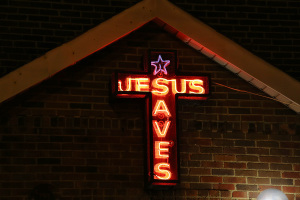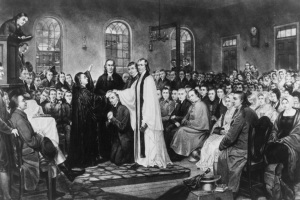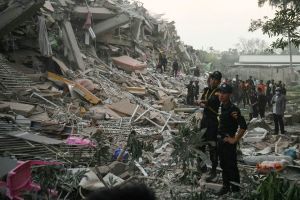Persecution of Believers Continues in Eritrea
Eritrea is a small country of 4 million located in eastern Africa on the Red Sea. But its lack of size and population doesn't mean it's not becoming one of the worst persecutors of Christians in the world.
An Open Doors co-worker recently paid a visit to the wife and children of an Eritrean pastor who was arrested three years ago, a victim of the government's clampdown on unregistered evangelical churches.
He met with the pastor's wife, Hadas, and their three daughters. Working as a hairdresser, Hadas struggles to provide for her girls. In addition to financial pressures, Hadas also feels stretched when it comes to the emotional care of her children. But despite the challenges, she reminds herself of the Lord's miraculous provisions for them.
She said: "There are times when things are too much for me. Then I cry before God. I ask friends and relatives to pray for me to come out of that situation. Then God reminds me of His promises and I am encouraged."
Compass Direct News reports there are approximately 2,000 Eritrean Christians under arrest without trial or legal charges solely for their religious beliefs. The prisoners include dozens of pastors and priests incarcerated in jails, police stations and military camps in 14 different cities and towns, some of them for more than three years.
Eritrean security forces began a harsh crackdown against the country's evangelical Protestant community five years ago, outlawing all churches not under the umbrella of the Orthodox, Catholic or Lutheran denominations.
Since May 2002, anyone caught worshipping outside the government-approved religious institutions, either in church buildings or in private homes, has been subjected to arrest, torture and extreme pressure to deny their faith. Even weddings and other social activities held within Christian communities have been raided and the participants hauled off to jail, according to Compass.
Under the totalitarian regime of President Isaias Afwerki, religious repression has escalated even further in the past two years. Targeted groups have included the Orthodox church's flourishing renewal movement and Muslim leaders who oppose the government-appointed mufti, according to Compass. At least 40 percent of Eritrea's citizens consider themselves Coptic Orthodox by birth, with at least half of the population of ethnic Muslim background.
Earlier this year, an Eritrean Christian died in prison, four and a half years after the Eritrean regime jailed him for worshipping in a banned Protestant church. From the southern port city of Assab, local Christians confirmed the death of Magos Solomon Semere on Feb. 15 at the Adi-Nefase Military Confinement facility just outside Assab.
Compass reported that according to one source, Semere, 30, died "due to physical torture and persistent pneumonia, for which he was forbidden proper medical treatment." He had reportedly endured a long period of severe illness in the months prior to his death. A member of the Rema Church, Semere had first been jailed in the fall of 2001, when he was arrested for evangelizing and starting meetings for worship with six other Christians.
Semere's death is the third known killing of a Christian for his faith since last October. On Oct. 17, 2006, Eritrean security police tortured two Christians to death, two days after arresting them for holding a religious service in a private home south of Asmara. Immanuel Andegergesh and Kibrom Firemichel died from torture wounds and severe dehydration in a military camp outside the town of Adi-Quala, according to Compass.
In May, the United States Commission on International Religious Freedom recommended that Eritrea be re-designated as one of 11 "countries of particular concern" for 2007. In including Eritrea on the list, the report noted that "religious freedom conditions continued to deteriorate in Eritrea, where the government engages in systematic and egregious religious freedom violations…." Despite the calls of governmental and human rights organizations to give religious freedom to all groups in the country, the Eritrean government has denied that any persecution exists.
After being imprisoned and suffering for serving the Lord, Caleb – not his real name – testified: "I learned a lot in prison. I was in isolation for five months. I was in complete darkness under very bad conditions. After five months I was moved to a bigger cell. I immediately started to share the gospel. The guards threatened to punish me and send me back to the isolation cell. When they told me this, the words of Paul came to mind: 'For me to live is Christ and to die is gain.' What I witnessed and experienced strengthened me more than it discouraged me."
Please join with me in praying for Caleb and those who are suffering for their faith in Eritrea.
_______________________________________________
Dr. Carl Moeller is president/CEO of Open Doors USA





























